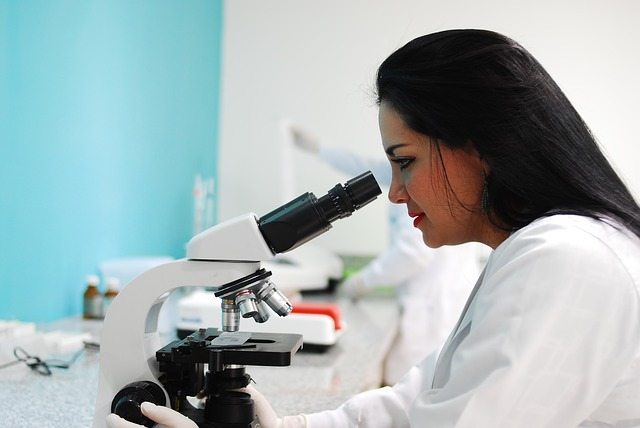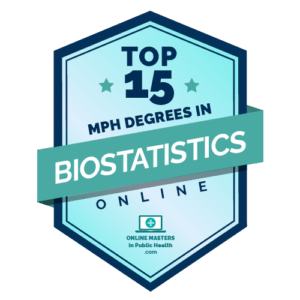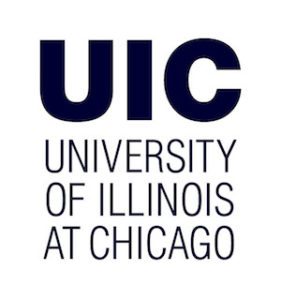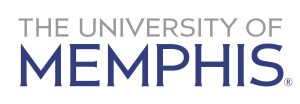
 Biostatistics is just one of the several highly specialized branches that fall under the broader scope of public health. The role of a biostatistician is very important; it is where the mathematical concept of statistics meets the medical application of biology. Data from questionnaires, studies, polls, and other types of experiments gives these scientists important insight into the status of public health. The information they collect can be used by:
Biostatistics is just one of the several highly specialized branches that fall under the broader scope of public health. The role of a biostatistician is very important; it is where the mathematical concept of statistics meets the medical application of biology. Data from questionnaires, studies, polls, and other types of experiments gives these scientists important insight into the status of public health. The information they collect can be used by:
- pharmaceutical companies
- government agencies
- medical centers
The information is used to solve and prevent problems in community health. Some common duties of people that work in biostatistics include:
- determining what problems or questions need to be studied
- determining what data they can collect and how to do so
- create experiments
- analyze the data
- draw appropriate conclusions
This process is important because it allows for more informed and effective decisions to be made in regard to:
- policies
- healthcare programs
- healthcare education
If that is a career that you are interested in, there is a lot of opportunity for you. The job market for biostatisticians is projected to grow 34% over the next decade. There is a growing interest in utilizing effective statistical analyses to maximize the positive impact of decisions. This serves to:
- decrease government spending on healthcare
- create better programs that promote health and wellness in at-risk communities
- create more effective medications with fewer side effects
- pursue better patient outcomes in the healthcare system
According to indeed.com, the median salary for people in this career is $90,000. A Master of Public Health or MPH in Biostatistics will prepare you to fill this role in any employment setting and ensure that you are maximizing your earning potential. Like most degrees, there is an abundance of educational opportunities for you to choose from. There are a number of universities that offer online Biostatistics programs. You can read about 10 of the best biostatistics programs in the following article, which were ranked according to the following:
Methodology

1) University of California, Berkeley – Berkeley, California
Online MPH in Epidemiology and Biostatistics
 The University of California, Berkeley is most often referred to just as the city that it is headquartered in, Berkeley, California. It is a public research university, and it is the flagship institution of the University of California System. It was founded in 1868 by the merging of the College of California and the Agricultural, Mining, and Mechanical Arts College. It was the first public university to be established in California. It is accredited by the Western Association of Schools and Colleges, Senior College and University Commission and serves an astoundingly large student body of over 40,000. Of course, with the scientific advancement associated with the university, it is no surprise that it is so highly regarded. Researchers associated with the university have been instrumental in discovering 16 chemical elements of the periodic table, creating the first atomic bomb, discovering the flu vaccine, and so much more.
The University of California, Berkeley is most often referred to just as the city that it is headquartered in, Berkeley, California. It is a public research university, and it is the flagship institution of the University of California System. It was founded in 1868 by the merging of the College of California and the Agricultural, Mining, and Mechanical Arts College. It was the first public university to be established in California. It is accredited by the Western Association of Schools and Colleges, Senior College and University Commission and serves an astoundingly large student body of over 40,000. Of course, with the scientific advancement associated with the university, it is no surprise that it is so highly regarded. Researchers associated with the university have been instrumental in discovering 16 chemical elements of the periodic table, creating the first atomic bomb, discovering the flu vaccine, and so much more.
The online MPH in Epidemiology and Biostatistics program at the University of California, Berkeley is a 27-month program. Courses requirements include:
- Health Policy and Management
- Epidemiologic Methods
- Health and Social Behavior
The curriculum has been expertly designed to give students all the skills and knowledge they need to excel in their careers. Graduates will understand the theory of statistics and the computational implementation of analytic methods. Students will understand how to use that knowledge effectively in their research and over the course of their careers. Students will have to attend campus twice during the program, each time for a week-long intensive experience. Berkeley describes this program as being 90% online. Even though the coursework is asynchronous, a lot of it is based around activities that will still foster a sense of community with your fellow students. The online MPH biostatistics and epidemiology program is structured according to a part-time schedule so that you can focus on one course at a time. Students are able to get the most out of it without disrupting their professional or personal life.
For more information, you can visit the University of California, Berkeley program website.
2) University of Louisville – Louisville, Kentucky
Online Master of Science in Biostatistics
 The University of Louisville is a public research university in Louisville, Kentucky. The University of Louisville is part of the Kentucky state university system. UL was founded in 1798 as Jefferson Seminary which closed in 1829. Later, the Louisville City council created the Louisville Medical Institute. In 1846, the Kentucky legislature combined the Medical Institute with the Louisville Collegiate Institution. In 1970, they joined the public university system as the University of Louisville.
The University of Louisville is a public research university in Louisville, Kentucky. The University of Louisville is part of the Kentucky state university system. UL was founded in 1798 as Jefferson Seminary which closed in 1829. Later, the Louisville City council created the Louisville Medical Institute. In 1846, the Kentucky legislature combined the Medical Institute with the Louisville Collegiate Institution. In 1970, they joined the public university system as the University of Louisville.
The biostatistics online masters degree at UL is offered by the School of Public Health and Information Science. The program is open to students with a bachelor’s degree in any field as long as they have exposure to quantitative methods. The standard program consists of 33 credits. The online biostatistics program features classes like:
- Categorical Data Analysis
- Mathematical Statistics
- Biostatistical Methods
Electives are available in areas like data mining and statistical methods. The program is designed to cultivate specific skills in regression analysis, survival analysis, and epidemiology methods. Students can earn their degree on a full-time or part-time basis. Graduates find jobs in many different sectors including:
- insurance
- pharmaceutical
- public health research
For more information, you can visit the University of Louisville program website.
3) Johns Hopkins University – Baltimore, Maryland
MPH Concentration in Epidemiologic and Biostatistical Methods
 Johns Hopkins University is a private research university located in Baltimore, Maryland. In addition to its Maryland and Washington DC campuses, JHU operates international centers in Italy, China, and Singapore. It is considered to be the first research university in America; it was founded in 1876 and truly revolutionized higher education by modeling itself after the ancient German Heidelberg University, integrating teaching and research for the first time. It was one of the founding members of the Association of American Universities and has been the top recipient of federal research grants for more than three consecutive decades. JHU offers degrees at the bachelors, masters, and doctoral levels as well as having various certificate-level offerings. Of the roughly 24,000 students, just over 6,000 of them are studying at the undergraduate level. The university is accredited by the Middle States Commission on Higher Education.
Johns Hopkins University is a private research university located in Baltimore, Maryland. In addition to its Maryland and Washington DC campuses, JHU operates international centers in Italy, China, and Singapore. It is considered to be the first research university in America; it was founded in 1876 and truly revolutionized higher education by modeling itself after the ancient German Heidelberg University, integrating teaching and research for the first time. It was one of the founding members of the Association of American Universities and has been the top recipient of federal research grants for more than three consecutive decades. JHU offers degrees at the bachelors, masters, and doctoral levels as well as having various certificate-level offerings. Of the roughly 24,000 students, just over 6,000 of them are studying at the undergraduate level. The university is accredited by the Middle States Commission on Higher Education.
Johns Hopkins University is home to the largest and oldest school of public health in the world, the Bloomberg School of Public Health. It was originally founded in 1916. The online biostatistics masters program at Johns Hopkins is an incredible opportunity. Students can earn a world-class education in their field without having to interrupt their lives. There are three start dates throughout the year in June, November, and January. The program begins with a mandatory one- or two-week long orientation on campus and the remainder of the program is comprised of self-paced online coursework.
All students have the freedom to customize their elective coursework so that it is perfectly tailored to their aspirations. The program is perfect for those of you who want to graduate as expertly trained biostatisticians with an intimate knowledge of research methods and epidemiology.
For more information, you can visit the Johns Hopkins University program website.
4) University of Southern California – Los Angeles, California
Online MPH with a concentration in Biostatistics and Epidemiology
 The University of Southern California is a sea- and space-grant private research university located in Los Angeles, California. It is the oldest private research university in the state, tracing its roots back to 1880. It was originally a Methodist institution and its first year saw an enrollment of just 53 students. However, much has changed since then. USC formally cut ties with the Methodist church in 1952 and operates as a nonsectarian institution and the student body has grown all the way to 49,318. Despite having such a large enrollment, the university still maintains a student to faculty ratio of just nine to one.
The University of Southern California is a sea- and space-grant private research university located in Los Angeles, California. It is the oldest private research university in the state, tracing its roots back to 1880. It was originally a Methodist institution and its first year saw an enrollment of just 53 students. However, much has changed since then. USC formally cut ties with the Methodist church in 1952 and operates as a nonsectarian institution and the student body has grown all the way to 49,318. Despite having such a large enrollment, the university still maintains a student to faculty ratio of just nine to one.
Students can earn degrees from the bachelors to doctoral level; offerings include 95 undergraduate majors, 147 minors, and 134 graduate-level programs. USC is accredited by the Western Association of Schools and Colleges, Senior College and University Commission and is a member of the Association of American Universities. Among alumni, faculty, and staff you’ll find a Turing Award winner, a National Humanities Medal winner, three National Medal of Arts winners, three National Medal of Science winners, three National Medal of Technology and Innovation winners, five MacArthur Fellows, five Nobel Laureates, eight Rhodes Scholars, 181 Fulbright Scholars, and more Oscar winners than any other institution worldwide.
The Keck School of Medicine at the University of Southern California offers an online MPH in Biostatistics and Epidemiology. These two disciplines are typically taught in individual programs. USC understands how the two intertwine to play a key role in meeting public health challenges around the globe. The courses in this program will teach you:
- methods of data collection and analysis
- the history of infectious disease
- how to apply your research to study and prevent chronic diseases and conditions, how to utilize major parametric and nonparametric statistical tools
The required practicum in public health can be completed where you already work or in a location near you. The coursework is self-paced, but you will also have opportunities to interact with your fellow students and faculty through live learning sessions and group projects. MPH biostatistics online students will also have the option to participate in international trips that are faculty-led. These provide students with the opportunity to get hands-on experience over the course of about two weeks. If you so choose, your practicum can be completed through these opportunities.
For more information, you can visit the University of Southern California program website.
5) University of Nebraska-Lincoln – Lincoln, Nebraska
Master of Public Health Degree with a Concentration in Biostatistics
 The University of Nebraska-Lincoln is a land-grant public research university located in Lincoln, Nebraska. It was chartered by the state legislature in 1869, just two years after Nebraska became a state, which makes it the oldest institution of higher learning in all of Nebraska. It is the flagship institution of the University of Nebraska System and remains the largest with a student body of 24,431. UNL is made up of:
The University of Nebraska-Lincoln is a land-grant public research university located in Lincoln, Nebraska. It was chartered by the state legislature in 1869, just two years after Nebraska became a state, which makes it the oldest institution of higher learning in all of Nebraska. It is the flagship institution of the University of Nebraska System and remains the largest with a student body of 24,431. UNL is made up of:
- the College of Agricultural Sciences and Natural Resources
- the College of Architecture
- the College of Arts and Sciences
- the College of Business Administration
- the College of Education and Human Sciences
- the College of Engineering
- the Hixson-Lied College of Fine and Performing Arts
- the College of Journalism and Mass Communications
- the College of Law
Through these academic divisions, UNL has close to 300 different programs of study from which students can choose. The university as a whole is accredited by the Higher Learning Commission. Alumni of the university have gone on to win three Nobel Prizes and eight Pulitzer Prizes; additionally, the university has produced a Marshall Scholar, 15 Truman Scholars, 22 Rhodes Scholars, and 29 Goldwater Scholars.
The University of Nebraska Medical Center houses the degree program the school has ranked for today; because of incomplete data, the information from the flagship institution of the system was used to determine its ranking. UNMC has close to 4,000 students, almost a third of which take advantage of the distance-learning opportunities offered. One of those offerings is the online MPH with a concentration in Biostatistics. It is entirely online, and students pay the same tuition rate regardless of where they live in the United States. This online biostatistics degree consists of 42 credits and admits students in the fall and spring semesters each year. The core curriculum covers topics such as:
- epidemiology
- public health leadership and advocacy
- designing medical studies
- several different approaches to data analysis
- SAS programming
You are required to earn three elective credits as well. In order to select electives that are relevant to your interests and professional goals, you will have the opportunity to work with an academic advisor to make the best possible decision. The majority of the coursework is presented asynchronously. As an online student, you will have access to all of the student services as that of a traditional student.
For more information, you can visit the University of Nebraska program website.
6) University of Illinois at Chicago – Chicago, Illinois
MPH in Public Health Informatics
 The University of Illinois at Chicago is a public research university in Chicago, Illinois. It is the largest university in the Chicago area and home to the nation’s largest medical school. The Chicago College of Pharmacy, the College of Physicians and Surgeons, and the Columbian College of dentistry were private health colleges that were founded in 1859, 1882, and 1893, respectively. These three institutions were the roots of what would become UIC. The University of Illinois was chartered in 1867 and absorbed the three health colleges in 1913. As more health science colleges were developed, these became the Chicago Professional Colleges, and eventually the University of Illinois at the Medical Center. Because of rising demand for a university in the Chicago area, the University of Illinois at Congress Circle was opened in the early sixties. The UIMC and UICC came together in 1982 to finally become the University of Illinois at Chicago. There are 14 colleges and schools that comprise the university, which offers degrees from the bachelors to doctorate level. Just under 35,000 students attend UIC. It is accredited by the Higher Learning Commission.
The University of Illinois at Chicago is a public research university in Chicago, Illinois. It is the largest university in the Chicago area and home to the nation’s largest medical school. The Chicago College of Pharmacy, the College of Physicians and Surgeons, and the Columbian College of dentistry were private health colleges that were founded in 1859, 1882, and 1893, respectively. These three institutions were the roots of what would become UIC. The University of Illinois was chartered in 1867 and absorbed the three health colleges in 1913. As more health science colleges were developed, these became the Chicago Professional Colleges, and eventually the University of Illinois at the Medical Center. Because of rising demand for a university in the Chicago area, the University of Illinois at Congress Circle was opened in the early sixties. The UIMC and UICC came together in 1982 to finally become the University of Illinois at Chicago. There are 14 colleges and schools that comprise the university, which offers degrees from the bachelors to doctorate level. Just under 35,000 students attend UIC. It is accredited by the Higher Learning Commission.
The UIC School of Public Health has one of the top biostatistics programs in the country. Their online Master of Public Health in Public Health Informatics is the only program of its kind offered entirely at a distance in America. Biostatisticians collect and analyze data and translate that into a meaningful conclusion in relation to public health; public health informatics is simply the process of translating data into useful information that can be used to increase the efficacy of public health decisions. These two fields don’t exist separately anymore, emerging more recently under the name bioinformatics.
The classes are completely asynchronous so that you can complete your assignments whenever is the most convenient for you. You will never have to visit the campus for any labs, lectures, seminars, or capstone presentations. This CEPH-accredited program features courses such as:
- Longitudinal Data Analysis
- Design of Clinical Trials
- Health Policy for Epidemiologists and Biostatisticians
You will also complete field experience somewhere convenient to your location. All students have the choice of three selectives and two electives relevant to your interests.
For more information, you can visit the University of Illinois at Chicago program website.
7) George Washington University – Washington, DC
MPH in Biostatistics
 The George Washington University is a private research university that is located in the nation’s capital, Washington, DC. It was first chartered by an act of the United States Congress in memory of our first president. George Washington called for the creation of a university at the capital in his first state of the union and even left the first endowment as part of his will. Financial difficulty hindered the establishment of the university for several decades after his death, but Columbian College came to be in 1821. It became the George Washington University in 1904. There are ten specialized accreditations that the university has received in addition to its institutional accreditation from the Middle States Commission on Higher Education. It is one of the most prestigious universities in the country, drawing students from all across America and over 100 foreign countries across the globe. Alumni include a number of prominent political figures around the world, award-winning athletes and entertainers, Nobel Laureates, and more. There are more than 70 areas of study for students to choose from offered through the 14 constituent colleges and schools. GWU currently enrolls 27,159 students.
The George Washington University is a private research university that is located in the nation’s capital, Washington, DC. It was first chartered by an act of the United States Congress in memory of our first president. George Washington called for the creation of a university at the capital in his first state of the union and even left the first endowment as part of his will. Financial difficulty hindered the establishment of the university for several decades after his death, but Columbian College came to be in 1821. It became the George Washington University in 1904. There are ten specialized accreditations that the university has received in addition to its institutional accreditation from the Middle States Commission on Higher Education. It is one of the most prestigious universities in the country, drawing students from all across America and over 100 foreign countries across the globe. Alumni include a number of prominent political figures around the world, award-winning athletes and entertainers, Nobel Laureates, and more. There are more than 70 areas of study for students to choose from offered through the 14 constituent colleges and schools. GWU currently enrolls 27,159 students.
The Master of Public Health Biostatistics program is a 45-credit program that includes a practicum. Students also complete what the university describes as a culminating experience. During the culminating experience, students must apply what they’ve learned in a real-world setting. Courses beyond the MPH core requirements include:
- Applied Categorical Data Analysis for Public Health Research
- Use of Statistical Packages: Data Management and Data Analysis
- Principles of Clinical Trials
You will also have the opportunity to choose your electives according to your specific area of interest or career goals. Students can take any one of the graduate-level courses offered by the School of Public Health even if it is atypical of a biostatistics degree program.
The MPH in Biostatistics is not offered entirely online. Instead, it is a hybrid program that allows you to complete up to one-third of all your courses online. Students complete the remaining classes on campus. Collaborative Institutional Training Initiative training and Professional Enhancement activities like lectures, seminars, or symposia related to your career field are additional required elements of the program as well.
For more information, you can visit the George Washington University program website.
8) East Tennessee State University – Johnson City, Tennessee
MPH in Biostatistics

East Tennessee State University is a public university that is located in Johnson City, Tennessee. ETSU is Tennessee’s fourth-largest university, serving just over 13,000 students. It was established in 1911 as East Tennessee State Normal School, and changed its name to East Tennessee State Teachers College in 1925, officially becoming a college at that time. Over the next several decades, it cycled through two other names before finally taking on its current title in 1963 to reflect its newly granted university status.
ETSU is accredited by the Southern Association of Colleges and Schools, Commission on Colleges and offers degrees from the bachelors to doctoral levels through its 11 academic divisions. These academic divisions include:
- the College of Arts and Sciences
- the College of Business and Technology
- the College of Clinical and Rehabilitative Health Sciences
- the College of Education
- the College of Medicine
- the College of Nursing
- the College of Pharmacy
- the College of Public Health
- the Honors College
- the School of Continuing Studies
- the School of Graduate Studies
The Master of Public Health program at East Tennessee State University offers a concentration in biostatistics. The biostatistics curriculum seeks to equip students with the skills they need to collect, manage, and analyze public health data. Students will build a strong foundation as they gain experience with basic data analysis and statistical software. The core curriculum covers biostatistics as well as the other four main competencies in public health, which are:
- community health
- environmental health
- epidemiology
- health services administration
The biostatistics masters online program consists of a total of 43 credits including field experience and electives that you select with an academic advisor. The program was designed to meet the needs of working professionals. Students can take one or two courses each term as their schedule allows. Graduates have the skills needed for a variety of potential career paths in areas like pharmaceutical and clinical trials and academia.
For more information, you can visit the East Tennessee State University program website.
9. Tufts University – Medford, Massachusetts
Online Master of Public Health – Epidemiology and Biostatistics
 Tufts University is a private not-for-profit university located in Medford, Massachusetts. in the 1970’s Tufts shifted from a small, liberal arts college to a large research university. Tufts has a great reputation for their active citizenship and public service projects. According to the National Center for Education Statistics, Tufts has 13,293 students and a student to faculty ratio of 10:1.
Tufts University is a private not-for-profit university located in Medford, Massachusetts. in the 1970’s Tufts shifted from a small, liberal arts college to a large research university. Tufts has a great reputation for their active citizenship and public service projects. According to the National Center for Education Statistics, Tufts has 13,293 students and a student to faculty ratio of 10:1.
The Tufts University School of Medicine offers an online MPH with a concentration in epidemiology and biostatistics. This 42-credit hour online masters in biostatistics takes 20 months to complete. Concentration courses include:
- Intermediate Biostatistics
- Survey Research Methods and Data Management
- Intermediate Epidemiology
- Analytical Workflow Management
Students will learn data analysis techniques to understand health inequities or data from clinical trials. Online students are engaged in live, seminar style classes that promote interaction. Courses are taught by faculty with experience in areas like health policy and epidemiology. Graduates are prepared to work in areas like public health research and community education.
For more information, you can visit the Tufts University.
10. University of Memphis – Memphis, Tennessee
Master of Public Health – Biostatistics
 The University of Memphis is a four-year public university located in Memphis, Tennessee. UM serves over 21,000 students and has a student to faculty ratio of 16:1. They are accredited by the Southern Association of Colleges and Schools, Commission on Colleges. UofM is accredited by the Council on Education for Public Health.
The University of Memphis is a four-year public university located in Memphis, Tennessee. UM serves over 21,000 students and has a student to faculty ratio of 16:1. They are accredited by the Southern Association of Colleges and Schools, Commission on Colleges. UofM is accredited by the Council on Education for Public Health.
The University of Memphis offers an online MPH program with a concentration in biostatistics. Students learn how to use statistics in public health settings. Courses give students experience working with large data sets using analytic software programs like SAS. The curriculum includes:
- Health Policy and Organization of Health Services
- Applied Survival Analysis in Public Health
- Mixed Model Regression Analysis
Students complete a practicum or field experience, gaining valuable professional experience. As a culminating experience, students can choose to complete a Master’s Project Seminar or a Master’s Thesis.
For more information, you can visit the University of Memphis.